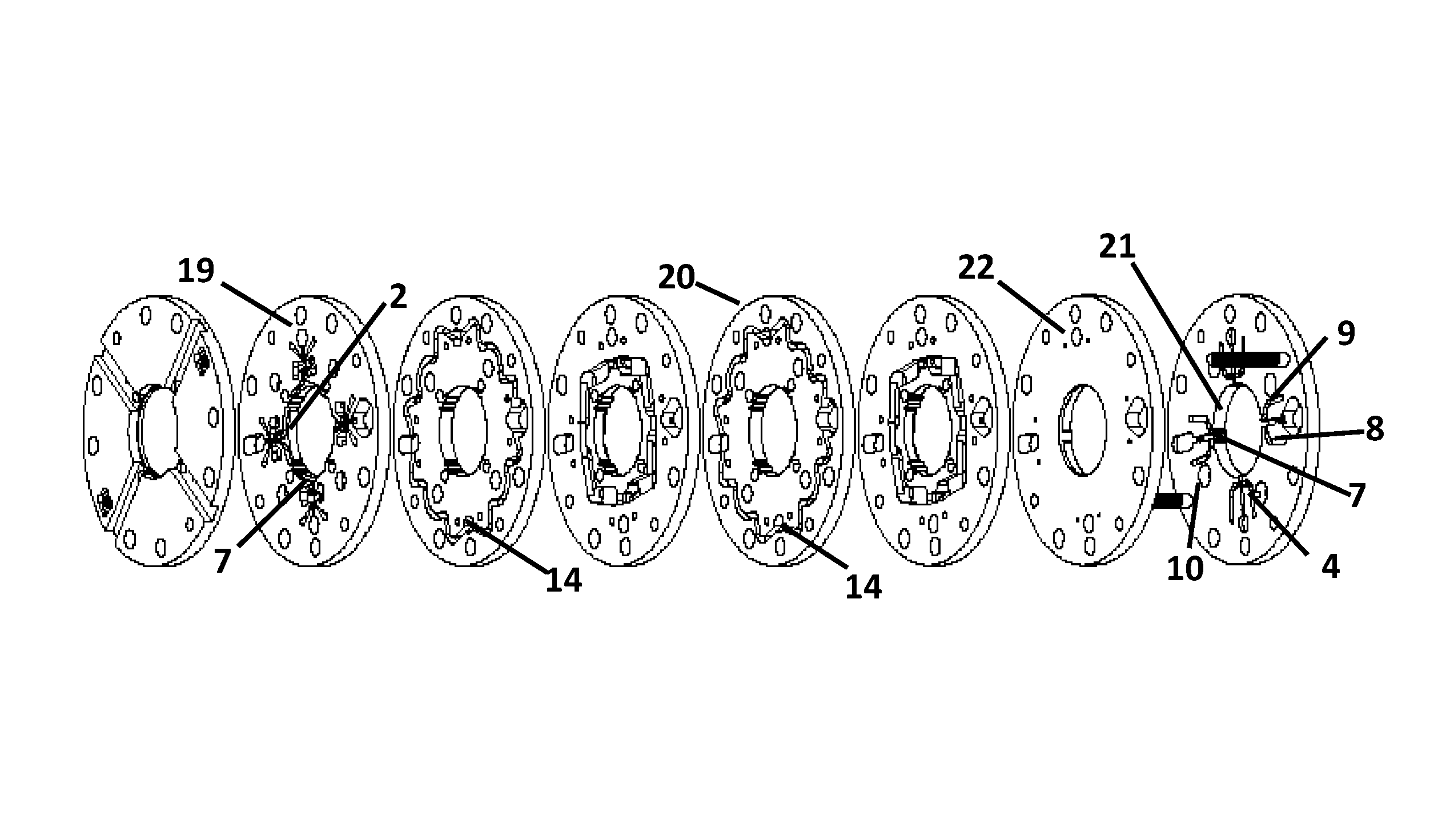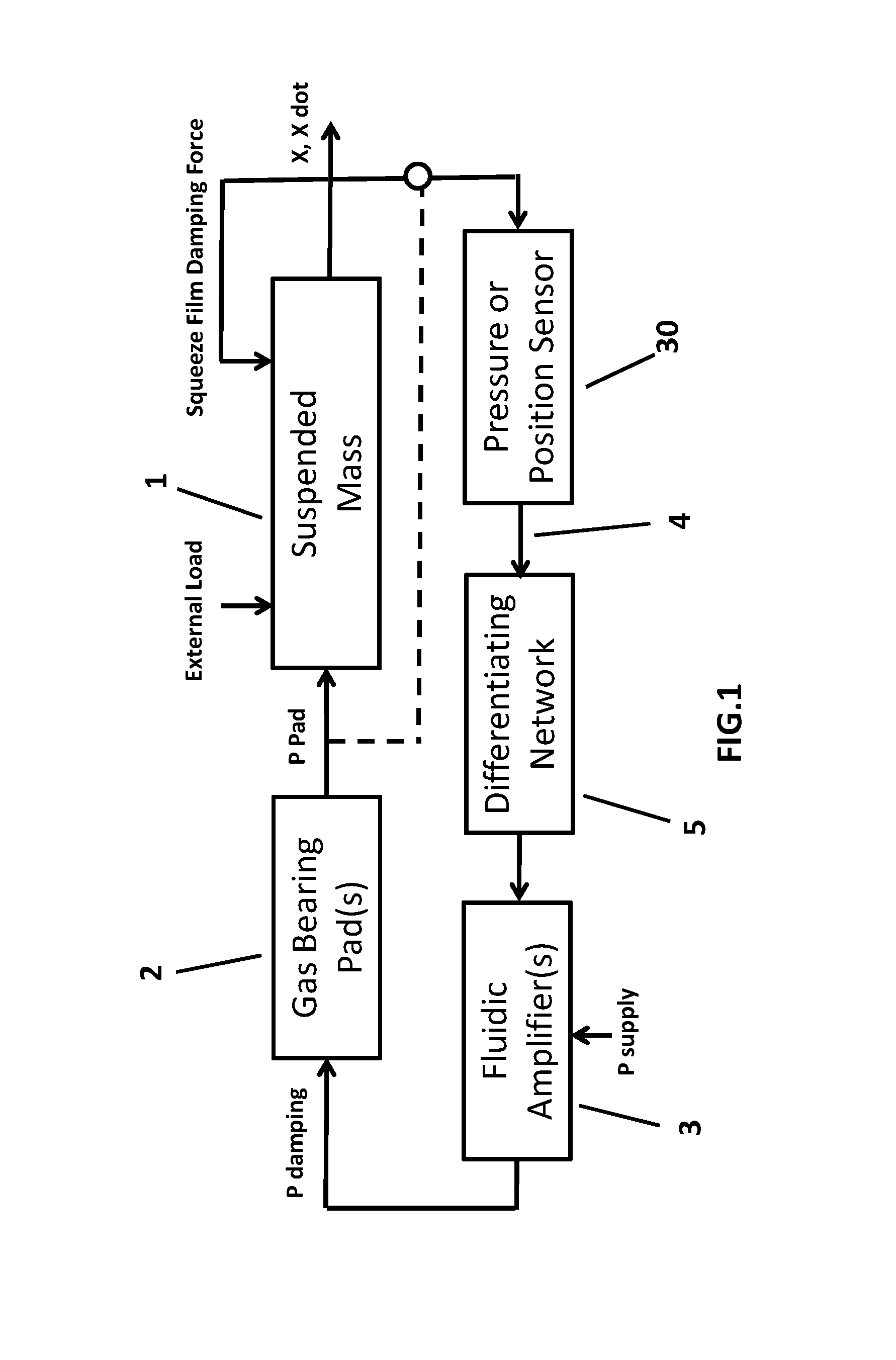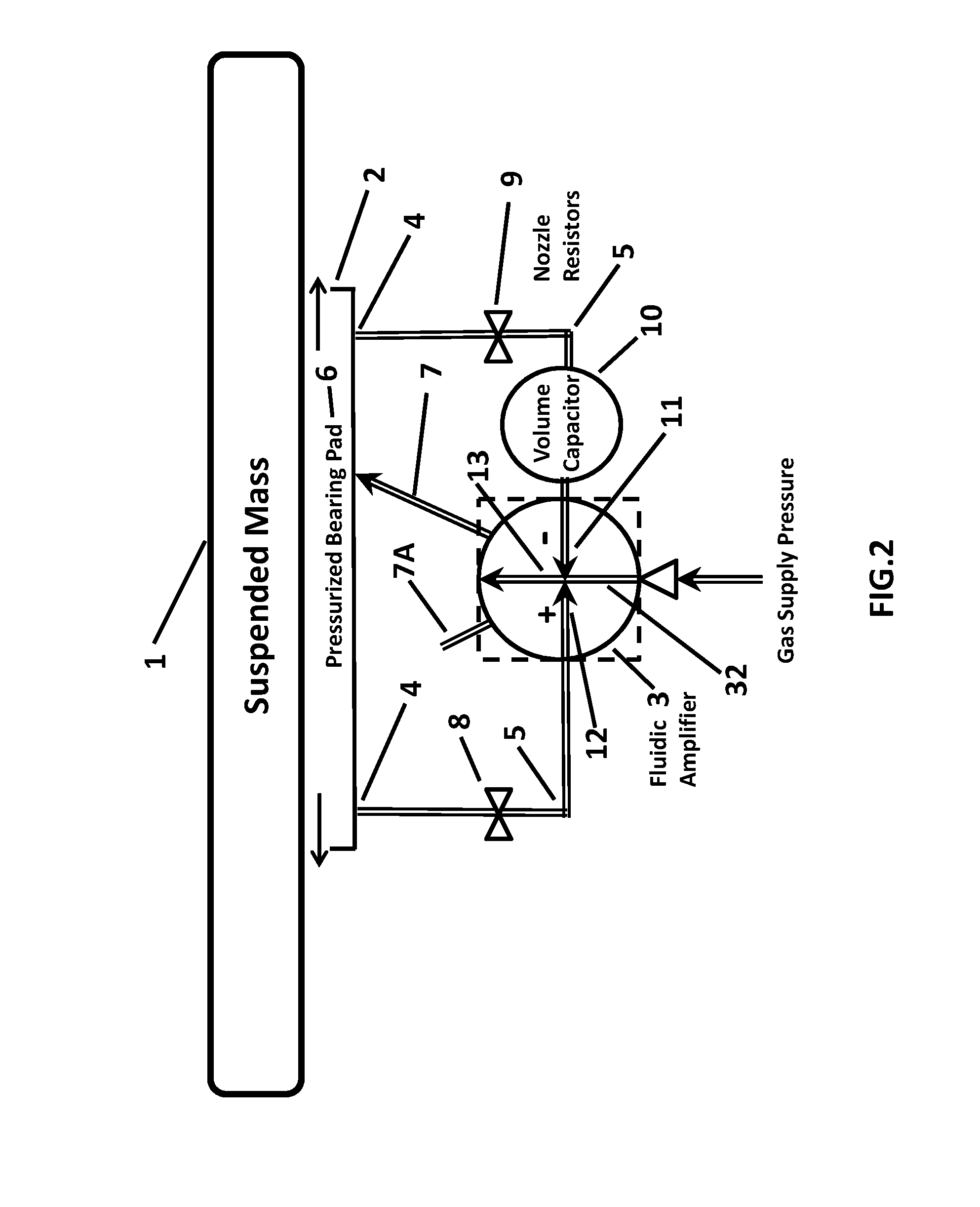Damped air bearing
a technology of air bearings and air bearings, which is applied in the direction of bearing cooling, sliding contact bearings, crankshafts, etc., can solve the problems of resonance or instability of air bearing suspension systems, resonance or instability of air bearings, and add to bearing wear and drag, so as to improve air bearing stiffness and overall positioning system accuracy, increase damping, and increase damping
- Summary
- Abstract
- Description
- Claims
- Application Information
AI Technical Summary
Benefits of technology
Problems solved by technology
Method used
Image
Examples
Embodiment Construction
[0017]The actively damped air bearing invention is best described referring to the drawings, wherein the same reference numerals are used identify the same elements throughout the drawings. Air bearings of the subject type are closed loop devices, and, if under damped, are unstable or oscillatory over the desired operating range.
[0018]FIG. 1 is a block diagram showing the elements of a closed loop air bearing with the addition of active fluidic damping. The system includes the mass 1 and external forces or loads on the object to be suspended on the pressurized area of bearing pad 2. The bearing pad 2 is pressurized by the output pressure (P damping) from a beam deflection fluidic amplifier 3 which is powered with a supply pressure (P supply) from an external source of pressurized gas. The output pressure (P damping) of the fluidic amplifier 3 is proportional to the differential pressure signal (P amp-in) applied across its input control ports. A feedback signal 4 to achieve active d...
PUM
 Login to View More
Login to View More Abstract
Description
Claims
Application Information
 Login to View More
Login to View More - R&D
- Intellectual Property
- Life Sciences
- Materials
- Tech Scout
- Unparalleled Data Quality
- Higher Quality Content
- 60% Fewer Hallucinations
Browse by: Latest US Patents, China's latest patents, Technical Efficacy Thesaurus, Application Domain, Technology Topic, Popular Technical Reports.
© 2025 PatSnap. All rights reserved.Legal|Privacy policy|Modern Slavery Act Transparency Statement|Sitemap|About US| Contact US: help@patsnap.com



